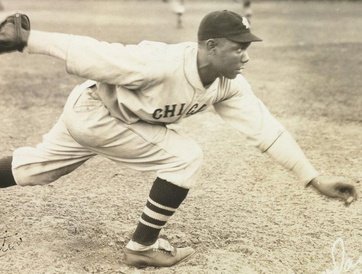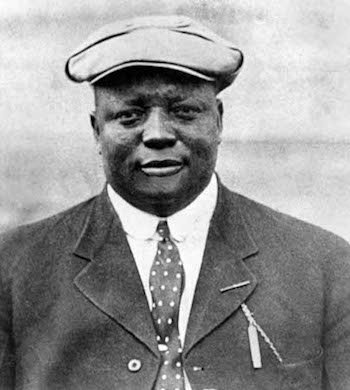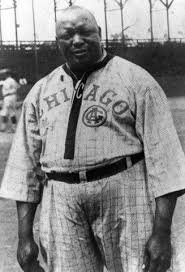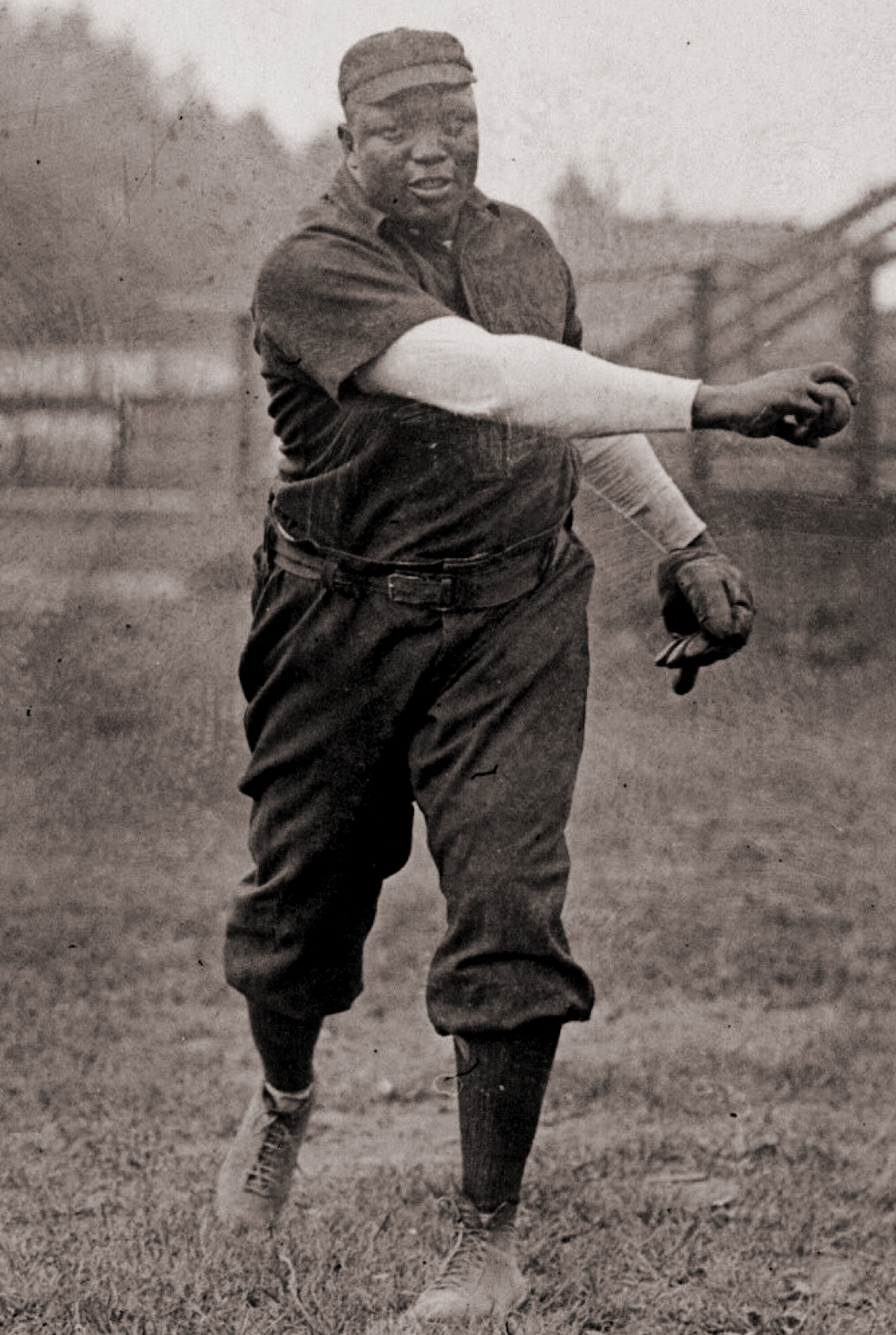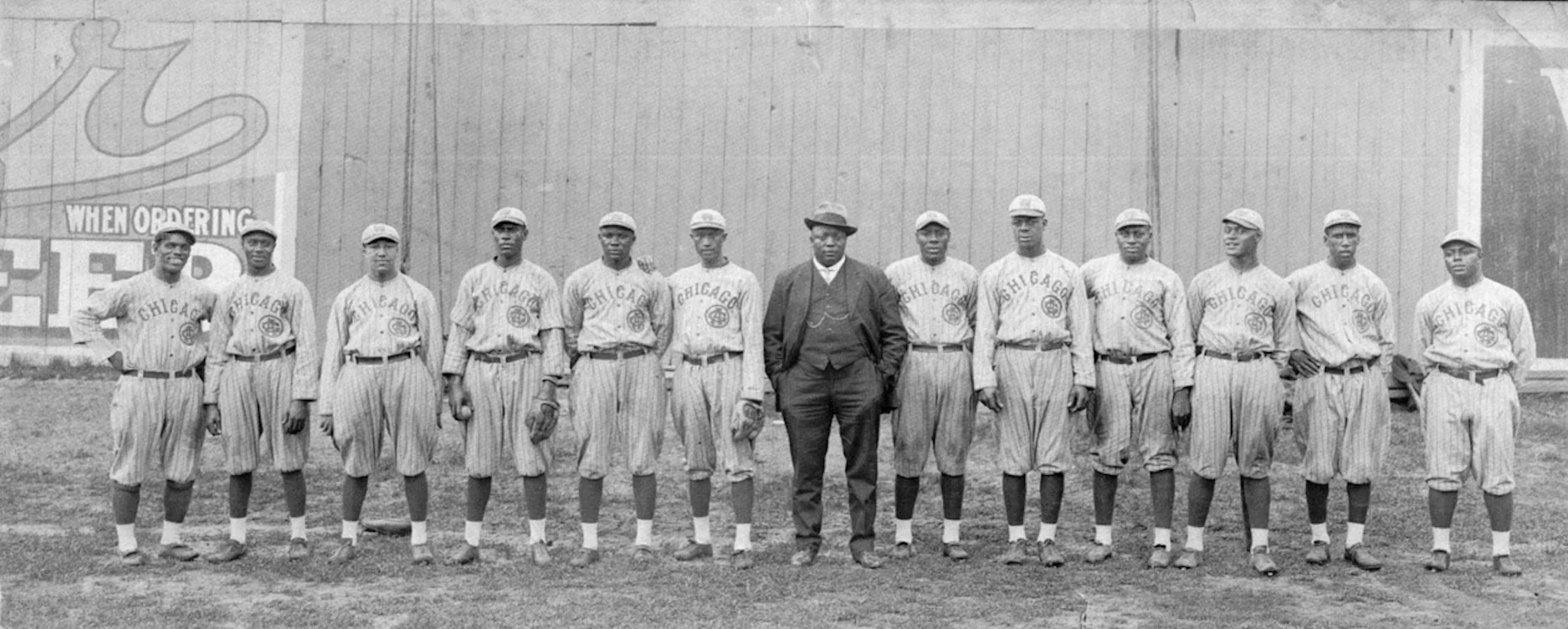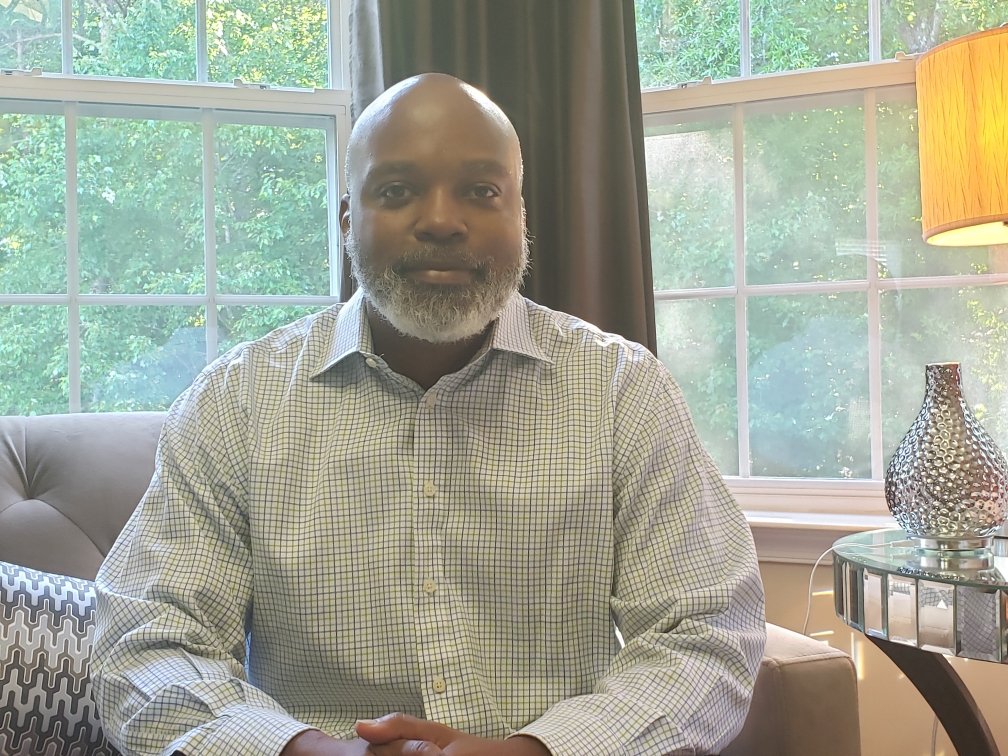William “Bill” Foster and
Andrew “Rube” Foster
William “Bill” Foster
The younger half-brother of Negro Leagues legend and founder Andrew “Rube” Foster, Bill Foster was a tall left-handed pitcher who played from 1923-37. For much of that time, he was considered the best lefty in the Negro Leagues.
Foster's pitch selection included a fastball, overhand curve, slider, sidearm curve, and a changeup.
Baseball people often characterized Foster as one of the game's great players.
According to Hall-of-Fame umpire Jocko Conlan, “Foster had the same perfect delivery of Herb Pennock, but was faster by far, with a sharp curve, and had what all great pitchers have - control.”
In 1926, Foster won 23 games in a row and 26 overall, but his most surprising performance came the last day of the playoffs to determine the Negro National League title. Needing to win both games of a doubleheader against the Kansas City Monarchs, Foster hurled complete-game shutouts in both games of a doubleheader against Bullet Joe Rogan and the Monarchs, 1–0 and 5–0, to put the Giants in the World Series.
Foster was inducted into the Baseball Hall of Fame in 1996. The Foster Baseball Field at McGowan Stadium in Lorman, the home field for Alcorn State baseball, is named for him. He was elected to the Southwestern Athletic Conference Hall of Fame the next year. In 2003, he was voted into the Mississippi Sports Hall of Fame.
Andrew “Rube” Foster
Widely considered "The Father of Black Baseball", Andrew "Rube" Foster was an American baseball player, manager, and executive in the Negro leagues.
Foster, considered by historians to have been perhaps the best African American pitcher of the first decade of the 1900s, also founded and managed the Chicago American Giants, one of the most successful black baseball teams of the pre-integration era. Most notably, he organized the Negro National League, the first long-lasting professional league for African American ballplayers, which operated from 1920 to 1931. Foster’s vision of a sporting landscape that fostered and allowed blacks to make a successful living was achieved, as he raised the profile of baseball for his race throughout the nation
Few men have dominant careers as baseball players. Even fewer have success as a manager. But Rube Foster excelled on the diamond as a manager and as an executive, earning him the recognition as the “Father of Black Baseball.” Foster’s life in baseball helped revolutionize the game and opened a door for African Americans to be viewed as equals on the baseball diamond, which ultimately led to breaking down the racial barriers in baseball.
In 1981, Foster was elected to the National Baseball Hall of Fame. He was the first representative of the Negro leagues elected as a pioneer or executive. Nothing could signify Foster’s contributions more than having only his image on the 2022 United States Mint commemorative coin honoring the Negro Leagues.
Foster’s vision of a sporting landscape that fostered and allowed blacks to make a living was nevertheless achieved, as he raised the profile of baseball for his race throughout the nation.
Family Member
Willam Doug Foster. Jr.
Grandson of William “Bill” Foster and
Great Nephew of Andrew “Rube” Foster
William Douglas Foster, Jr. was born in Washington, DC on March 21, 1971. He was raised in the DC Metro area. He graduated in 1988 from Potomac High School in Oxon Hill, MD and graduated in 1993 with a BS degree in Accounting from the University of MD-Eastern Shore in Princess Anne, MD. He is a proud member of Omega Psi Phi Fraternity, Inc since the Fall of 1989. He now resides in Accokeek, MD with his wife and two teenage children.
Mr. Foster currently holds the position of the Chief Financial Officer at the Federal Energy Regulatory Commission (FERC). He’s been working at FERC since May of 1993. He’s had several positions at FERC. He started out as an accountant, but has also been an auditor, systems accountant, accounting manager and finally, the CFO.
In his spare time, Mr. Foster enjoys going to the movies with his family, eating out with his wife, traveling to warm Caribbean places and chilling on the beach or poolside with a nice refreshing tropical drink, amusement parks, and hanging out with his friends.
In 2022, Mr. Foster created the Fosters Legacy Foundation (FLF). The FLF is a non-profit organization focused on honoring the legacies of both Rube and Bill Foster by utilizing the sport and business of baseball to improve the lives of those living in underserved communities. To accomplish this, the FLF will look to equip people from those communities with the skills and resources they need to help them reach their full potential. The FLF will focus primarily in four areas that were important to the lives of Rube and Bill Foster: 1.) increasing the popularity and participation of African Americans in the sport of baseball; 2.) creating programs designed at creating entrepreneurs in underserved communities; 3.) increasing awareness around mental health; and 4.) improving the overall quality of life of those living in underserved communities. To learn more about the FLF, feel free to visit them at www.fosterslegacy.com.

